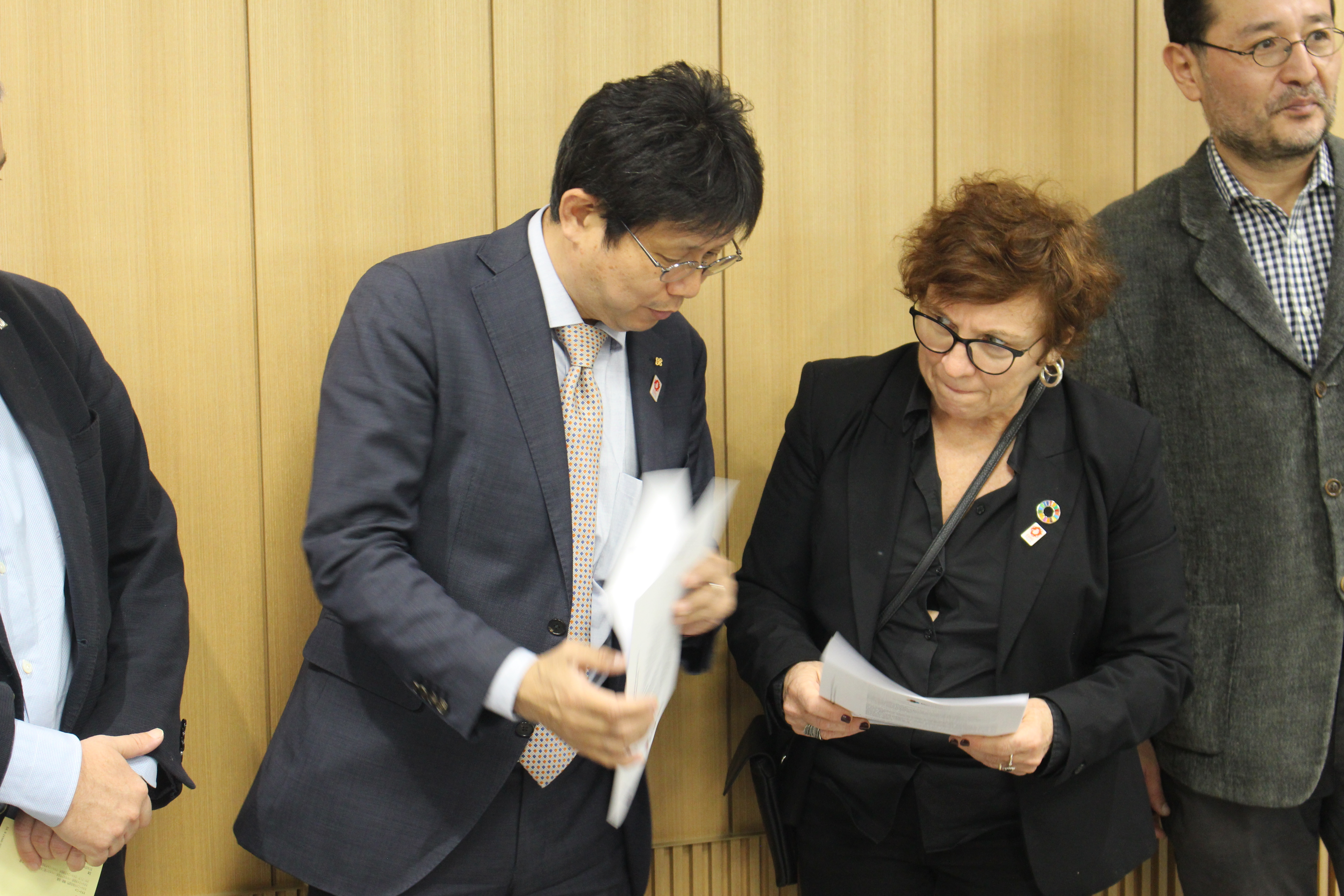Biocat travels to Japan to promote the BioRegion and explore opportunities to collaborate on innovation in health
<p>The organization accompanied the Catalan Ministry of Research and Universities on its visit to Japan. A trip that took place under the framework of the <strong><a href="https://www.iurc.eu/2022/05/12/apply-now-eu-japan-region-to-region-inno…; target="_blank">EU-Japan Region-to-Region Innovation Cooperation</a></strong> program, where Catalonia was one of six European regions chosen to take part in this exploratory project to exchange knowledge.</p>

Biocat accompanied the Catalan Ministry of Research and Universities representing the life sciences and healthcare sector of Catalonia on its trip to Japan, organized under the framework of the EU-Japan Region-to-Region Innovation Cooperation program promoted by the EU International Urban and Regional Cooperation (IURC) program and coordinated by DG REGIO (Directorate-General for Regional and Urban Policy) and the Foreign Policy Instruments (FPI) services of the European Commission.
Catalonia, promoting the BioRegion and Hydrogen Valley, was one of six European regions chosen to participate, alongside Auvergne-Rhône-Alpes (France), Val-d’Oise (France), Basque Country (Spain), Emilia-Romagna (Italy) and Ljubljana Urban Region (Slovenia).
The six regions were called to this Asian country from November 13 to 19, where they visited various prefectures (Aichi, Hiroshima, Osaka, Oita and Kyoto) and held work meetings to exchange strategies to promote the key areas under the S3 and regional policies on innovation in general. They also visited pilot projects and testbeds for cutting-edge innovative technologies.
Biocat Director of Science Policy and Internationalization Montserrat Daban presented a memorandum of understanding signed by Biocat to Hiroyuki Akatsuka, associate director of Osaka Bio Headquarters, the life sciences industry division of the Osaka Prefectural Government. Also present were Xavier Aldeguer, director-general for Knowledge Society, Transfer and Territory for the Government of Catalonia; Amadeo Jensana, director of Economic Affairs for Casa Àsia, in Barcelona; and César Moreno, director of the CE Foreign Policy Instruments project.

Montserrat Daban, director of Science Policy and Internationalisation at Biocat, hands over the memorandum of understanding signed by Biocat to Hiroyuki Akatsuka, associate director of Osaka Bio Headquarters.
The visit reinforced the organization’s ties with the Prefecture of Osaka, after the groundwork was laid during the European BioXClusters project and continued in the BioXClusters Alliance with European clusters LyonBiopole and BioM.
The journey concluded with a meeting to exchange proposals, held at Keihanna Science City (Kyoto) and presided by Jean-Eric Paquet, director-general for Research and Innovation for the European Committee and current EU ambassador to Japan.
After the trip, over the coming months participants will develop specific collaboration proposals based on the opportunities identified and welcome visitors from the Japanese prefectures to Europe in June 2023. Catalonia will be one of the reverse missions, in line with the priorities established, one of which is health innovation. The program will conclude in November 2023 with a region-to-region partnering.
Increasingly innovative and green cooperation
The project aims to improve and internationalize regional innovation strategy for the regions and prefectures selected to participate, and to encourage the EU and Japan to share good practices, in addition to promoting business opportunities.
This cooperation is based each region’s Smart specialization strategies for sustainable and inclusive growth and focuses on three policies for innovation and competitiveness:
- Green transition: circular economy, clean energy, climate change and sustainable mobility.
- Industrial transformation: industrial transformation, digitalization and social innovation.
- Demographic transition and competitiveness: public services and infrastructures in regions facing an aging population and depopulation.
